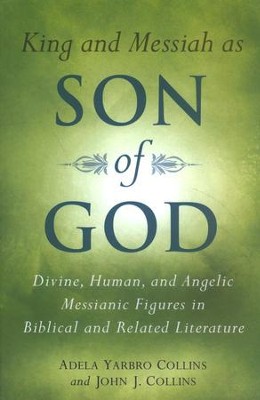I am interrupting
the salvation series to have a brief look at another topic of interest to many
Christians. Recently someone asked my opinion as to what a Christian
perspective toward alcohol might or should be. It’s been a topic I’ve wanted to
discuss for a while, so here we go.
 Within the
Bible, Old and New Testaments, there are people who drink wine. What is to be
made of such narratives and the wine they are consuming? I grew up in a fundamentalist
environment where not only abstinence was “strongly encouraged,” but biblical
interpretation mandated it.
Within the
Bible, Old and New Testaments, there are people who drink wine. What is to be
made of such narratives and the wine they are consuming? I grew up in a fundamentalist
environment where not only abstinence was “strongly encouraged,” but biblical
interpretation mandated it.
There are
numerous positions on this topic which various traditions take regarding the
consumption of alcoholic beverage. Most however, I assume, would agree that
being controlled and addicted to alcohol is forbidden in Scripture (e.g. Eph
5:18, 1 Tim 3:8). Let me summarize a few of these perspectives:
· Some
drink and have no problem getting a bit tipsy, others are fine with being
intoxicated occasionally, but are not addicts (i.e. drunkards).
· There
are those who enjoy the occasional glass of wine or a beer, etc. but do not get
intoxicated.
· There
are some who abstain from any form of alcohol due to preference, denominational
allegiance, conviction etc., but not because they feel it is mandated by
Scripture.
· Then,
there is a minority who believe that everyone biblically is prohibited from consuming
any type of alcohol. Often this is linked to an interpretation of what “wine”
is in the NT.
I have
personally heard it said, "the early Church didn't drink wine, they drank
grape juice." "Ok, it was wine," others have conceded, "but
its alcoholic percentage was extremely low, not like the wine today." I
suppose this perfectly explains how the Corinthians were getting inebriated
when consuming it? Let’s just
get this out forth right:
“All wine mentioned in the Bible is fermented grape
juice with an alcohol content. No non-fermented drink was called wine.”
While there
are many examples that could be presented, Acts 2:13 is sufficient. When the
spirit came upon these followers of Jesus on Pentecost (Shavuot) some strange things
were happening. Some mockers proposed, “They are filled with new wine” (Act
2:13 ESV). Peter takes this as an insinuation of being drunk, “These men are
not drunk, as you suppose” (Act 2:15 NAU). If this “new” wine contained no
alcohol or fermentation and therefore cannot cause intoxication, then why do
they imply intoxication and Peter infers it?
Perhaps some expositors want the Bible to say what they want it to say.

The popular
text for addressing this topic is John 2 and Jesus’ involvement with providing “wine”
(Gr. oinos) at a wedding (i.e. Jesus
as a bartender). Some, who have taken issue with Jesus’ connection to alcohol, propose
this “wine” was watered-down, unfermented or that it was merely grape juice. New
wine – wine that was most recently harvested – was capable of intoxication,
although it was not as strong as old wine – that from the previous year’s
harvest. There is nothing in the culture or the text to lead to the conclusion
that this wine failed to possess any amount of alcoholic content.
It may
surprise some, but this sign Jesus
performed at the outset of John’s narrative is not about wine, prohibition or
indulgence. It’s not the point of the story. This story is loaded with nuance
for John’s particular audience in Asia Minor and also an
“implicit contrast
between water used for Jewish purificatory rites and the wine given by Jesus;
the former is characteristic of the old order, the latter of the new. There can
be little doubt that the change of which the miracle is a sign is the coming of
the kingdom of God in and through Jesus.”
When
serving the wine to guests, it may have been that the wine was watered down for
the sake of preventing rapid inebriation, as Keener notes,
“Sometimes at Greek
parties drunkenness was induced through less dilution or the addition of herbal
toxins, but Jewish teachers disapproved of such practices; that drunkenness is
part of the celebration of Cana is unlikely. Yet one would normally serve the
better wine first because, drunk or not, guests’ senses would become more dulled
as the seven days of banqueting proceeded.”
There were
those in the Bible that abstained from wine for various reasons. If nothing
else, the example of abstinence by some (Nazarites, Rechabites, Daniel and
company)
should alert us to the fact that they did so for a specific reason. What reason
could there be to refrain from drinking merely grape juice, or unfermented wine?
“A careful
examination of all the Hebrew words (as well as their Semitic cognates) and the
Greek words for wine demonstrates that the ancients knew little, if anything,
about unfermented wine.”
Overall,
the OT and NT look with favor toward drinking wine when done so in a
responsible way.
“The
evidence . . . suggests that wine in the OT was not mixed with water and was
looked on with favor when taken in moderation.”
Oinos (Gr. Wine) was definitely fermented;
not merely grape juice. While they would indeed mix it with differing
substances, in multiple ratios, for various times and purposes of drinking, this
in and of itself provides no evidence to suggest they did so because of
morality or ethical issues against it. Drunkenness was forbidden; excess, not the
wine itself.
“Wine was
consumed at daily meals (Gen 14:18; Judg 19:19; 1 Sam 16:20; 2 Chron 11:11; Is
55:1; Dan 1:5; Lk 7:33–34). It was customary in Greek, Roman, Jewish and early
Christian cultures to mix wine (Jub. 49:6; 2 Macc 15:39; m. Ber. 7:5; 8:2; m. ˓Abod.
Zar. 5:5; b. Šabb.
77a; Pesah 108b), usually with water (Is 1:22; cf. Ps 75:8[9]; Prov 9:2, 5; Is
65:11).”
The OT and
NT are not against wine, whether it be old or new. There is no reason to think
that Jesus did not drink fermented wine, and the NT makes no such distinction.
Actually, according to his own admission he drank wine from which others
abstained:
“For John
the Baptist has come eating no bread and drinking no wine,
and you say, 'He has a demon!' The Son of Man has come eating and drinking, and
you say, 'Behold, a gluttonous man and a drunkard, a friend of tax collectors
and sinners!'” (Luk 7:33-34 NAU).
The best summary
I can offer is that addiction, overindulgence, drunkenness or abuse of wine (or
strong drink) is strictly forbidden. It is the conscience of the individual
that must be taken into consideration. If you are among those who for various
reasons are offended by it, don’t. Basically, love for your brothers and
sisters and not wishing to cause them hardship should override your “need” for
a drink. But having a conviction to abstain need not mean we twist the text in
order to support that conviction.






























